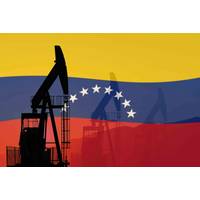China's First Private-led Refinery Planned
$15 bln project would be biggest private-led energy installation.
A private-led Chinese group is planning to build a $15 billion mega-petrochemical complex on an island near Shanghai, in what would be the country's first and largest energy installation to be built by a non-state investor, industry sources said.
Zhejiang Petrochemical, 51 percent owned by textile giant Rongsheng Holding Group, last month awarded a key design contract for the project, which could compete head-to-head with state-owned firms such as Sinopec that dominate the market.
The project is one of the first concrete signs of Beijing's stated desire to experiment with "mixed ownership" - or partial privatisation - in its massive state-controlled energy sector to boost efficiency and drive greener growth.
"The project was inspired by Premier Li Keqiang's visit in 2014 that called for a pilot 'mixed ownership' project led by private companies," said a senior industry source close to Rongsheng, referring to Li's visit to the city of Zhoushan, where the project will be located.
Rongsheng has partnered with local firms, including a state-owned chemical producer, to build the complex, which would include a 400,000 barrels per day refinery and a 1.4 million tonnes a year ethylene plant.
Details of how the project would be funded were not available.
Zhejiang Petrochemical has awarded the designing contract to three firms, including China Huanqiu Contracting and Engineering Corp and Sinopec's Luoyang Petrochemical Engineering Corp, for the project, to be built on the 6.25 sq km (2.4 sq mile) Dayushan Island, off eastern China, near the ports of Shanghai and Ningbo.
The project, which needs Beijing's approvals including environmental clearances, is likely to start up around 2020, according to two sources with knowledge of the plan.
Rongsheng's press department was not immediately available for comment. Local Zhoushan city officials declined to comment.
Beijing has since July 2015 allowed more than 20 small independent refineries, nicknamed "teapots", to import crude oil for the first time, leading to refining overcapacity that has resulted in China exporting record volumes of oil products.
"The entry of private firms into the refining business was a fruit of the sector reform, but the capacity surplus is a reality to face," said Li Shousheng, chairman of China Petroleum and Chemical Industry Federation.
Rongsheng, founded in 1989 as a small textile firm, has grown into a conglomerate that is also involved in property and logistics with more than 50 billion yuan ($7.7 billion) worth of assets.
It is China's largest independent producer of PTA, a synthetic fibre derived from petroleum for making textile and packaging materials.
Despite being a refining giant, China replies on imports for more than 40 percent of its petrochemical needs.
Rongsheng is among a group of independent petrochemical manufacturers long interested in expanding into the oil refining business that provides the industry's feedstocks.
"That is China's industry dilemma: surplus in fuel capacity, but short in petrochemicals," said Wu Kang, vice chairman for Asia at energy consultancy FGE.
By Chen Aizhu



